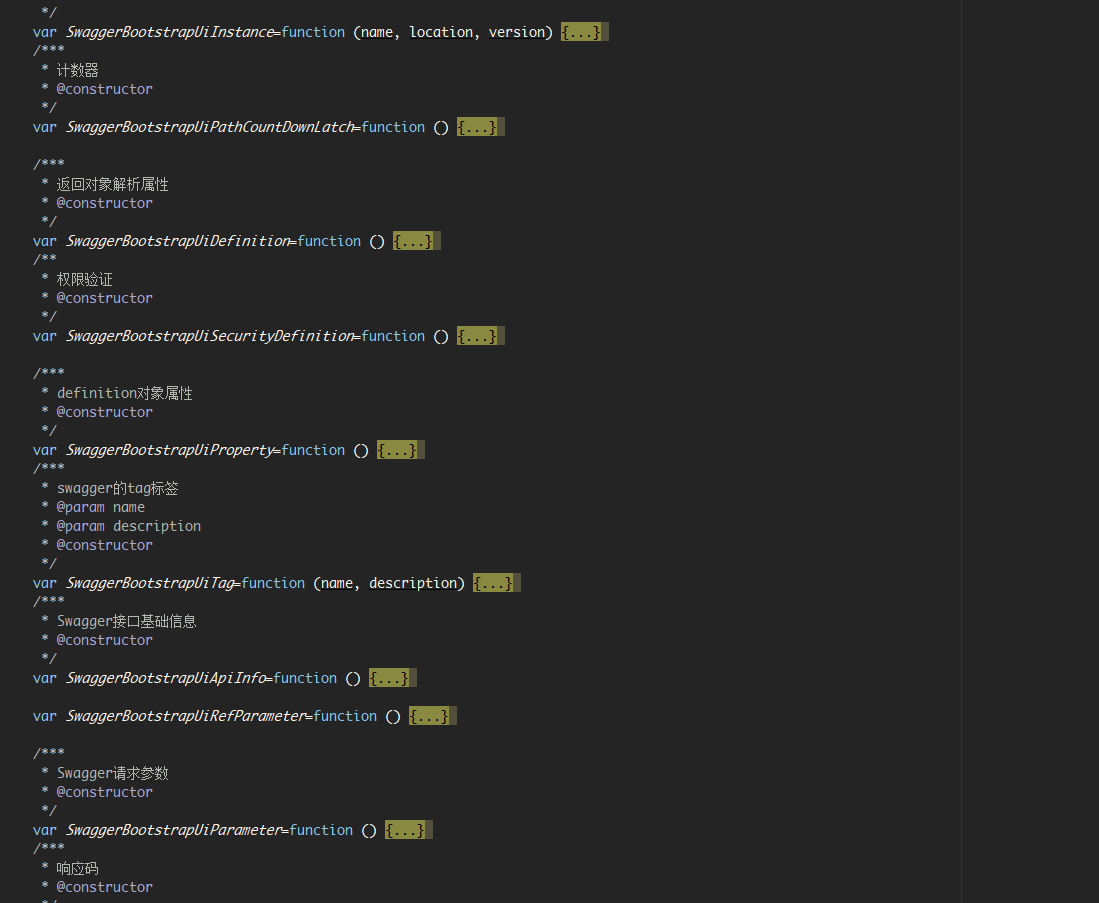有了以上Springfox-Swagger的两个接口,就可以根据这2个接口来生成页面了,这里有一个前提,为什么可以根据这个来生成,因为Springfox-Swagger给出的两个接口地址是固定的,所以写这套UI也能得到通用.
swagger-bootstrap-ui主要使用到的前端技术栈主要包括:
| 属性 | 说明 |
|---|---|
| jquery | <” rel=”nofollow”>http://jquery.com/>; |
| bootstrap | http://getbootstrap.com |
| layer | <” rel=”nofollow”>http://layer.layui.com/>; |
| jsonviews | <” rel=”nofollow”>https://github.com/yesmeck/jquery-jsonview>; |
| clipboard | <” rel=”nofollow”>https://github.com/zenorocha/clipboard.js>; |
| axios.min.js | <” rel=”nofollow”>https://github.com/axios/axios>; |
| marked | <” rel=”nofollow”>https://github.com/markedjs/marked>; |
| art-template | <” rel=”nofollow”>https://github.com/aui/art-template>; |
这里主要说一些swagger-bootstrap-ui的一些思路,源码的话大家可以去码云或者GitHub上去看
1、 构建SwaggerBootstrapUi主对象,类似Java后端面向对象的方式来写,定义一些基础属性,这样也方便后期扩展;
var SwaggerBootstrapUi=function () {
//swagger请求api地址
this.url="swagger-resources";
//文档id
this.docId="content";
//tabid
this.tabId="tabUl";
this.tabContentId="tabContent";
this.searchEleId="spanSearch";
this.searchTxtEleId="searchTxt";
this.menuId="menu";
this.searchMenuId="searchMenu";
//实例分组
this.instances=new Array();
//当前分组实例
this.currentInstance=null;
//动态tab
this.globalTabId="sbu-dynamic-tab";
this.globalTabs=new Array();
this.tabsLiContent=null;
this.tabsPostProcessors=null;
包括swagger的响应的属性,也重新在js中定义函数,使用面向对象的方式来操作

2、 初始化工作,sbu的入口即main方法,类似于SpringBoot的main方法,读源码的朋友可以从这个方法进入;
/***
* swagger-bootstrap-ui的main方法,初始化文档所有功能,类似于SpringBoot的main方法
*/
SwaggerBootstrapUi.prototype.main=function () {
var that=this;
that.initWindowWidthAndHeight();
that.windowResize();
//加载分组接口
that.analysisGroup();
//创建分组元素
that.createGroupElement();
//搜索
that.searchEvents();
3、 数据和页面分离,使用art-template模板渲染,这样保持js的独立性;